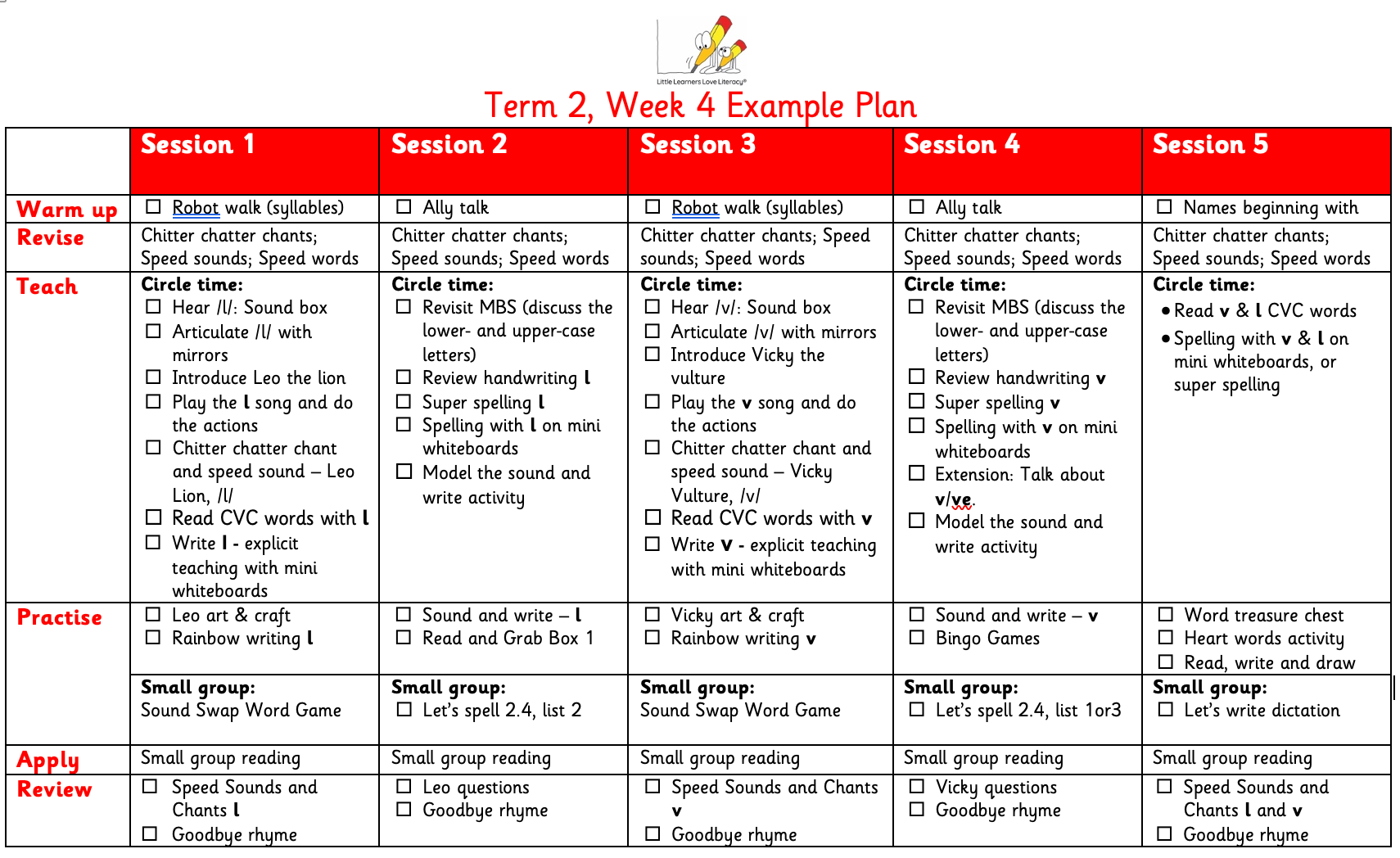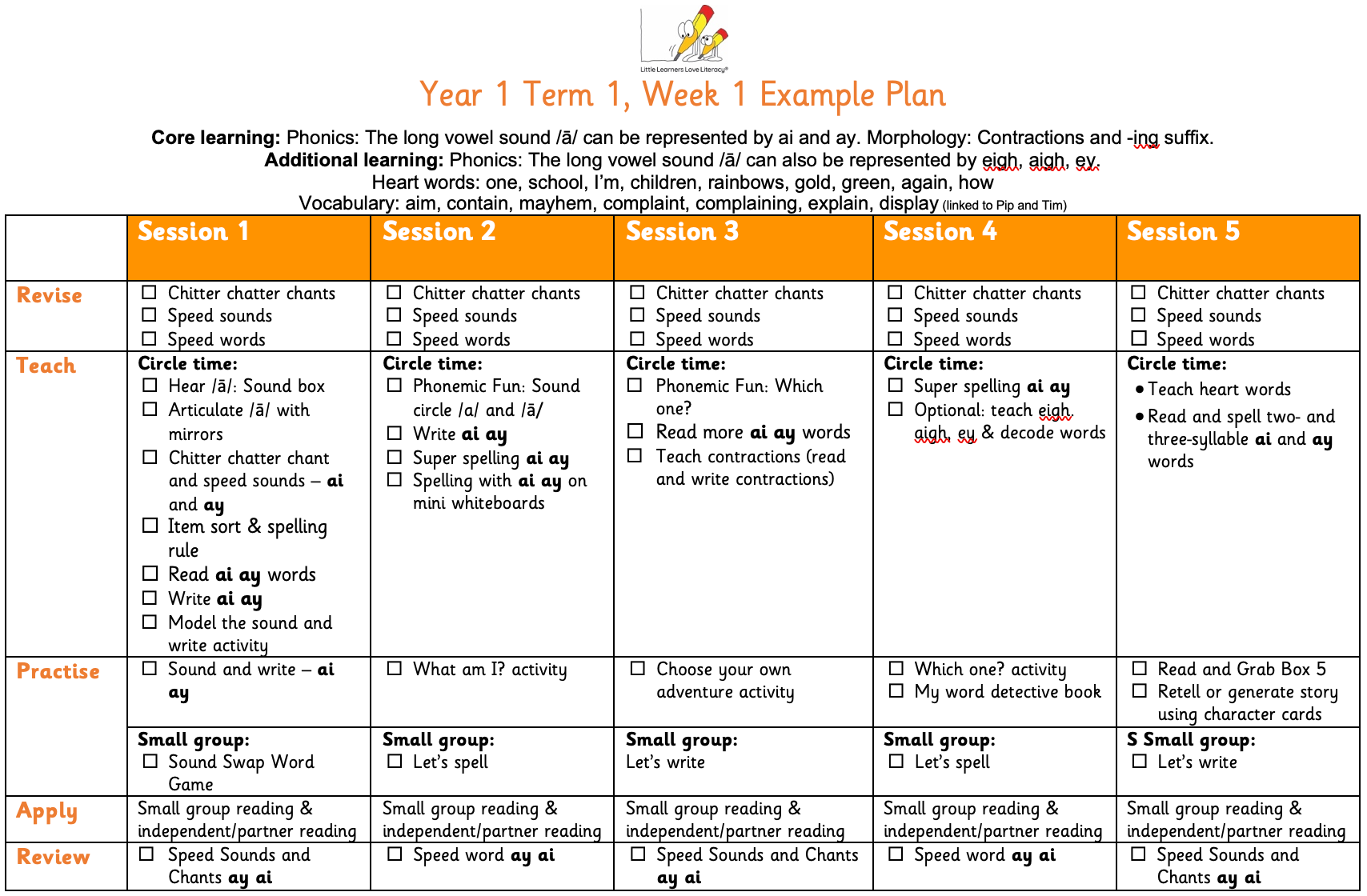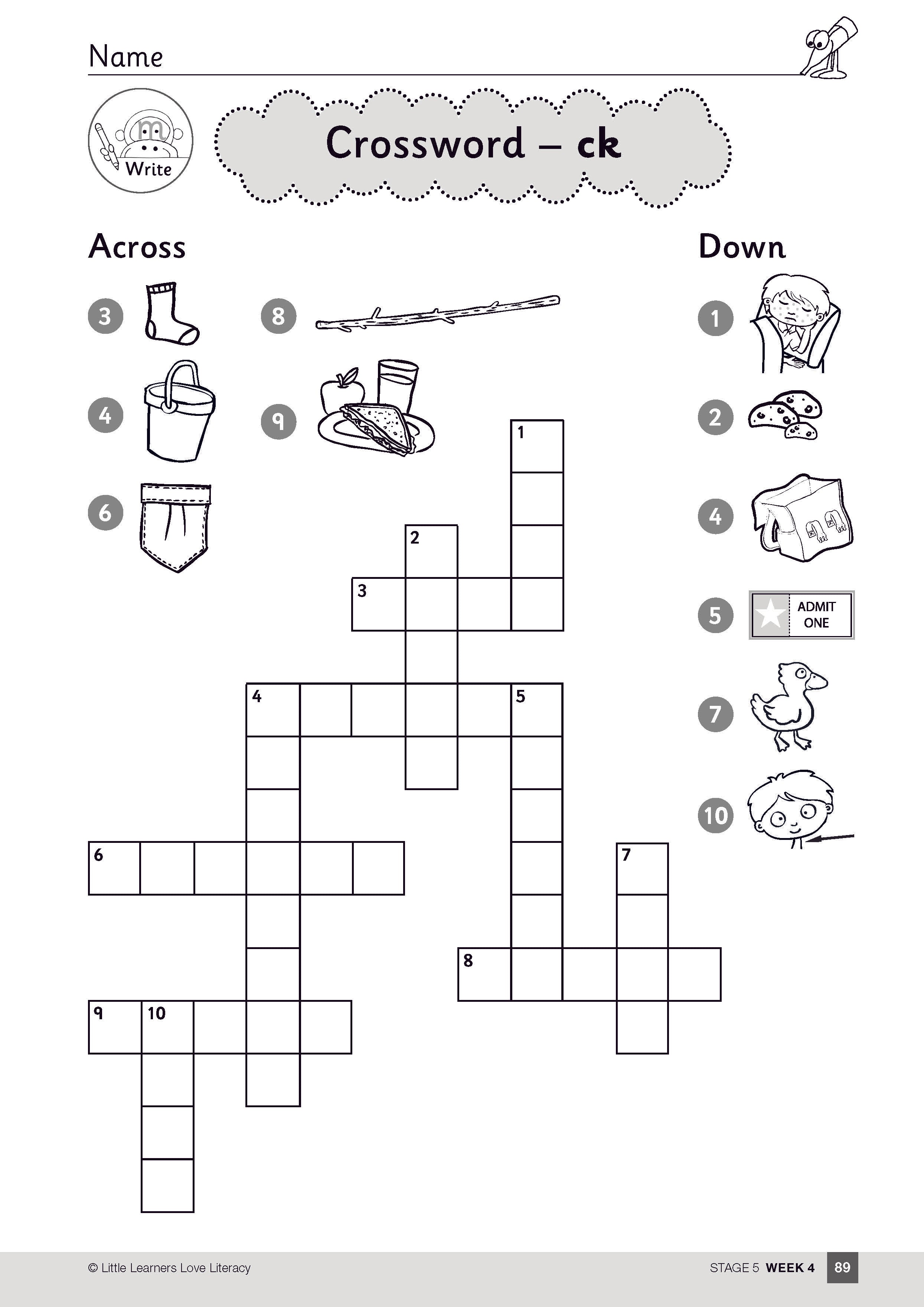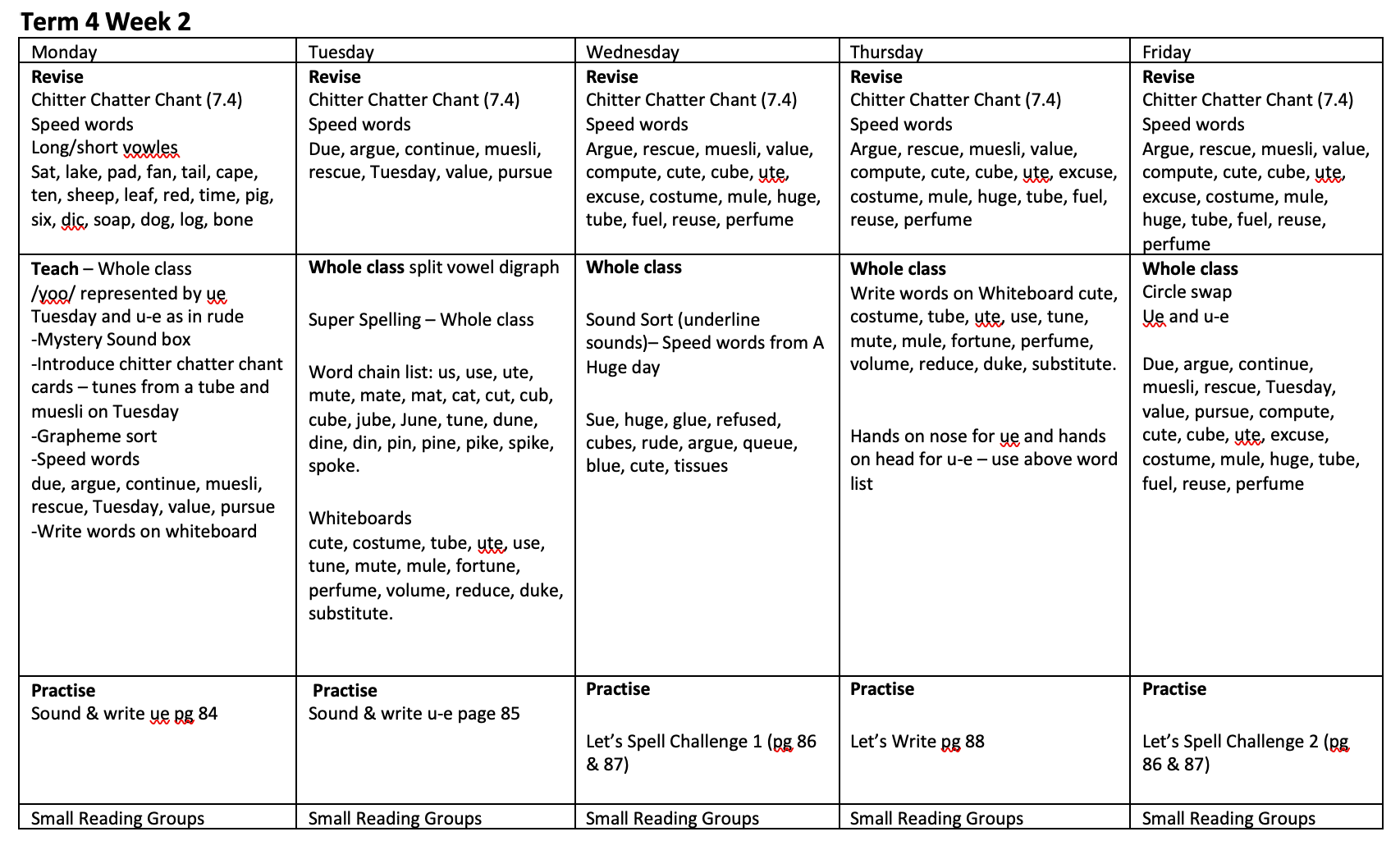Planning Little Learners Love Literacy®
The Little Learners Love Literacy® resources and teaching approach are sequential, structured and explicit. Weekly plans will follow our cumulative scope and sequence, and each daily session follows our explicit teaching approach of revise - teach - practise - apply - assess.
Planning Little Learners Love Literacy® sessions is simple – use the weekly planning information and activities provided in the Teacher Activity Resource books. Routines and activities are repeated regularly each week to reduce the learner's cognitive load (sound box, super spelling, sound and write, let’s spell, let’s write, small group reading and more). Activities in your plan will include a mixture of whole-class instruction, small group work led by the teacher and independent work.
On this page you will find information and tips to help you get started with your Little Learners Love Literacy planning. If the terminology and references are not familiar to you, we highly recommend you join us for a two-day professional learning workshop. We run workshops in- person and online via Zoom, facilitated by teachers who use the program in their school. And please contact the Little Learners team if you need any further support.

Frequently asked questions ....
Planning tips
-Daily sessions are ideal. Or some schools do 4 longer sessions per week leaving Friday for other things.
- Use the TAR weekly planning notes - everything you need to inform your plan is here.
- Master the LLLL routines - watch our YouTube videos and read guidance in the TARs
- Stick to the teaching sequence: the LLLL phonics sequence and also the explicit teaching sequence of revise, teach, practice, apply, assess.
Planning with the Little Learners teaching sequence
Each column on the sequence represents one week of teaching.
Each weekly literacy planner should follow the Little Learners Love Literacy®
teaching sequence. Learning is cumulative and all
activities have been designed to provide children with
practice and application opportunities using their skills and knowledge. Changing the sequence risks children being asked to read and spell using phonemes, graphemes or morphemes that they have not been explicitly taught yet. We want to set them up for success and sticking to the sequence will help you to do this.
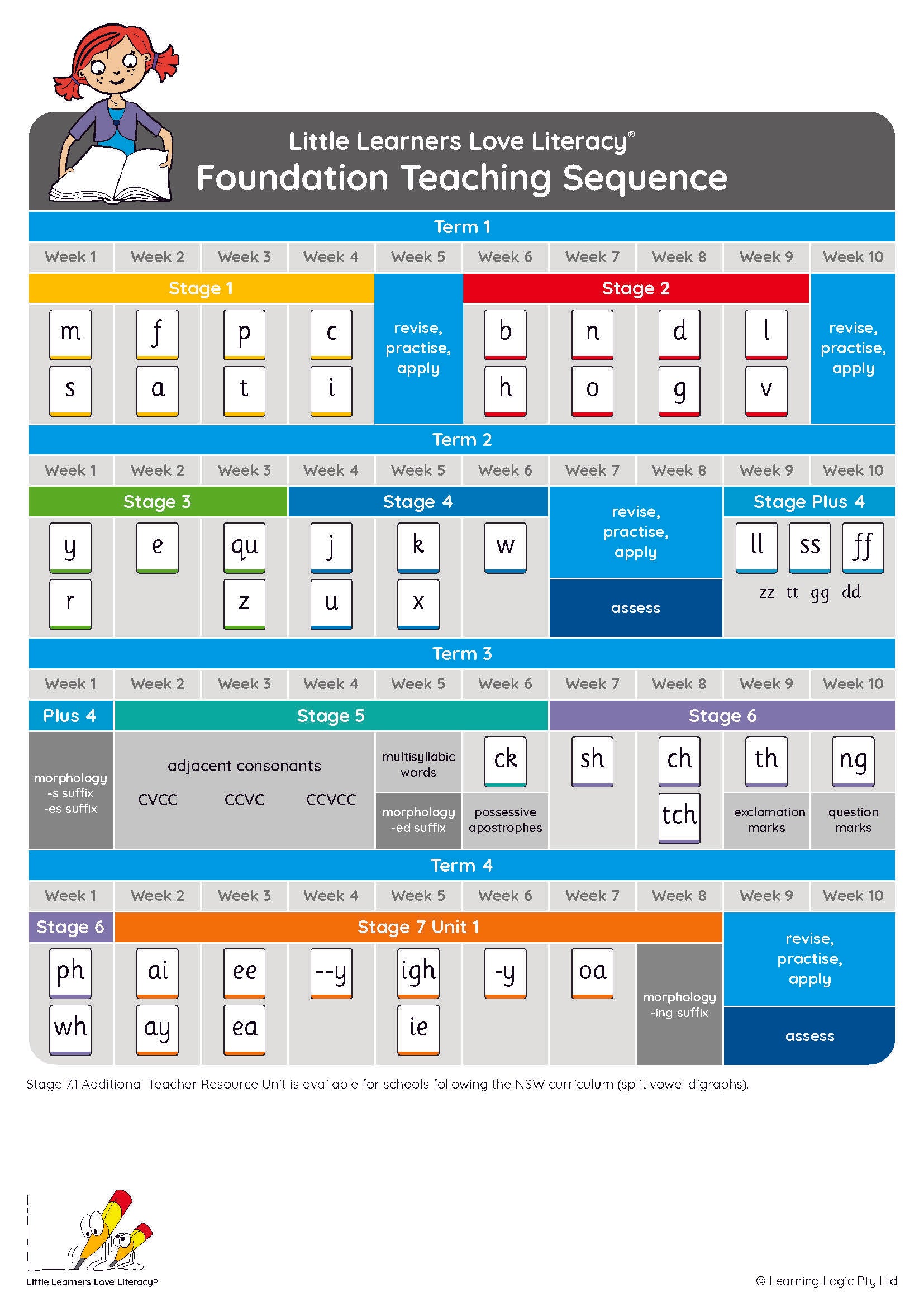
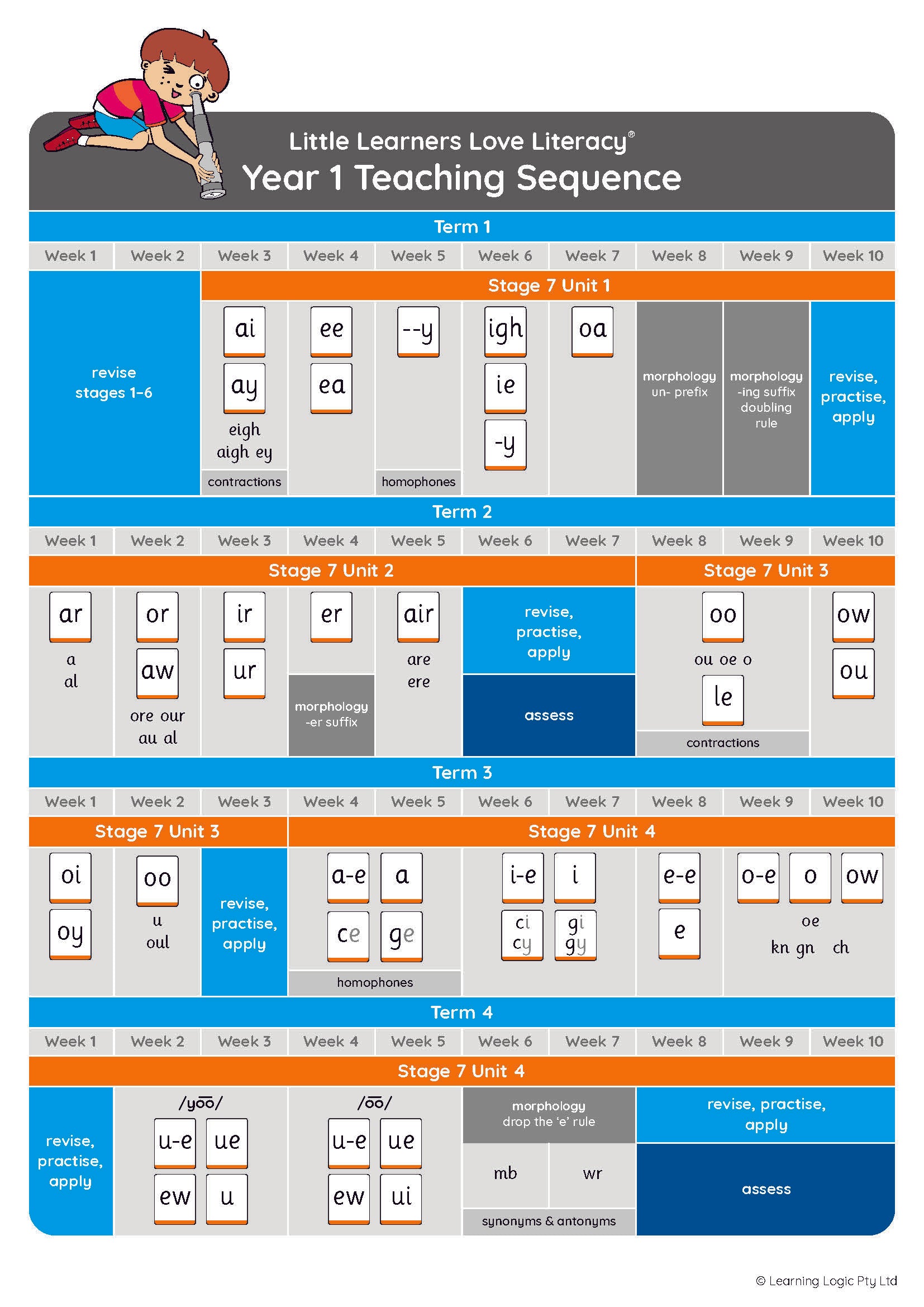
Explicit instruction

• All LLLL sessions follow the principle of ‘I Do – We Do – You
Do’. Model everything before supporting students to
have a go themselves, even if it might feel unnecessary.
• Revision is a crucial part of the explicit teaching
routine as it allows children to commit their learning to
long-term memory. It also provides an opportunity to
check for understanding and for everybody to ‘warm
up’ for the new learning.
• Check for understanding regularly throughout the
lesson by asking questions, asking children to tell their
partner and then monitoring responses by picking
non-volunteers. Act on the responses by elaborating or re-teaching, if necessary.
• Review at the end of the session by asking children to
tell their partner what they have learnt and by doing
the new speed sound and chant one more time. This
quick, informal check will inform next steps.
Little Learners Love Literacy Routines
| Whole Class | Small Group | Independent |
|---|---|---|
| Milo’s birthday surprise storybook and music
Sound box Phonemic fun Super spelling Speed sounds & chitter chatter chants Speed words Handwriting instruction Encoding & decoding guided practice Ally talk activities | Sound Swap Word Game Let’s Spell Let’s write – dictation Small group reading with decodables Read and Grab Word Game Read and match Bingo games Milo's making words placemats, flipbook and alphabet games | Read, write and draw
Let’s write – lucky dip Rainbow writing Sound and write Activity sheets Reading & recording with the apps Art and craft My word detective Teacher-made games Reading in pairs or independently |
Planning with your Teacher Activity Resource (TAR) & Assessments
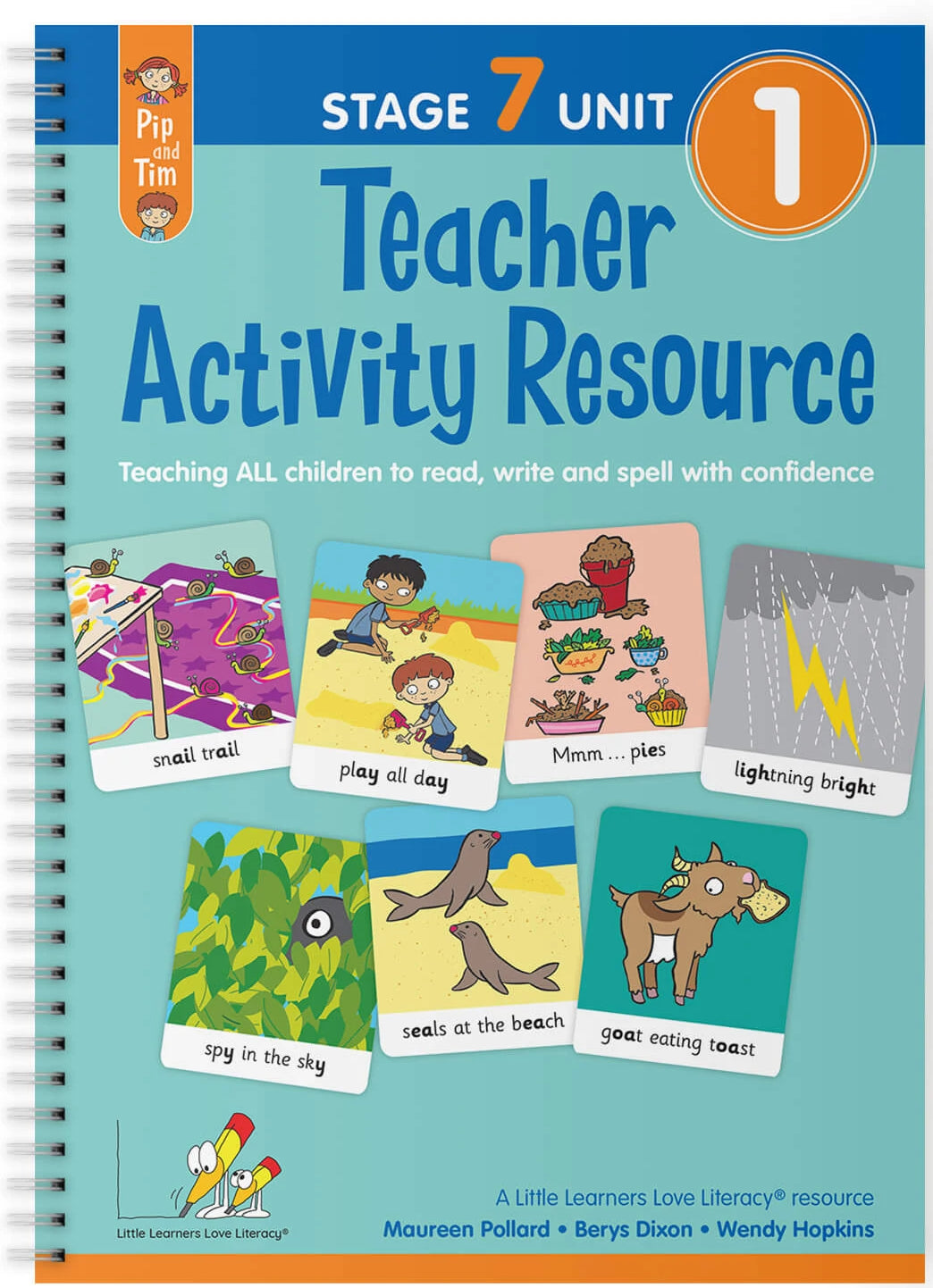

Each Teacher Activity Resource book (TAR) breaks down the teaching sequence content with weekly planning guidance - like the page to the left.
The TARs include unique small group instruction resources such as Let’s spell, Let’s write, Sound and write. They also include phonemic fun activities for the whole class; opportunities for children to grow their vocabulary; and opportunities for children to practise and apply knowledge with activities for independent reading and writing. Examples of these are provided below.
Assessments
Use Little Learners Assessments to inform and adjust your tier 1 (classroom) teaching and Tier 2 interventions. There are three formal assessments in the Little Learners Love Literacy® program – one for reading, one for spelling and one for phonological awareness. Together, these tools identify the progress and skill level of each child. They show exactly what a child can do so that teachers can plan what needs to be taught next, as well as track crucial progress data for reporting. Read more about the data you will get from the LLARS, LLASS and ToPALL here.
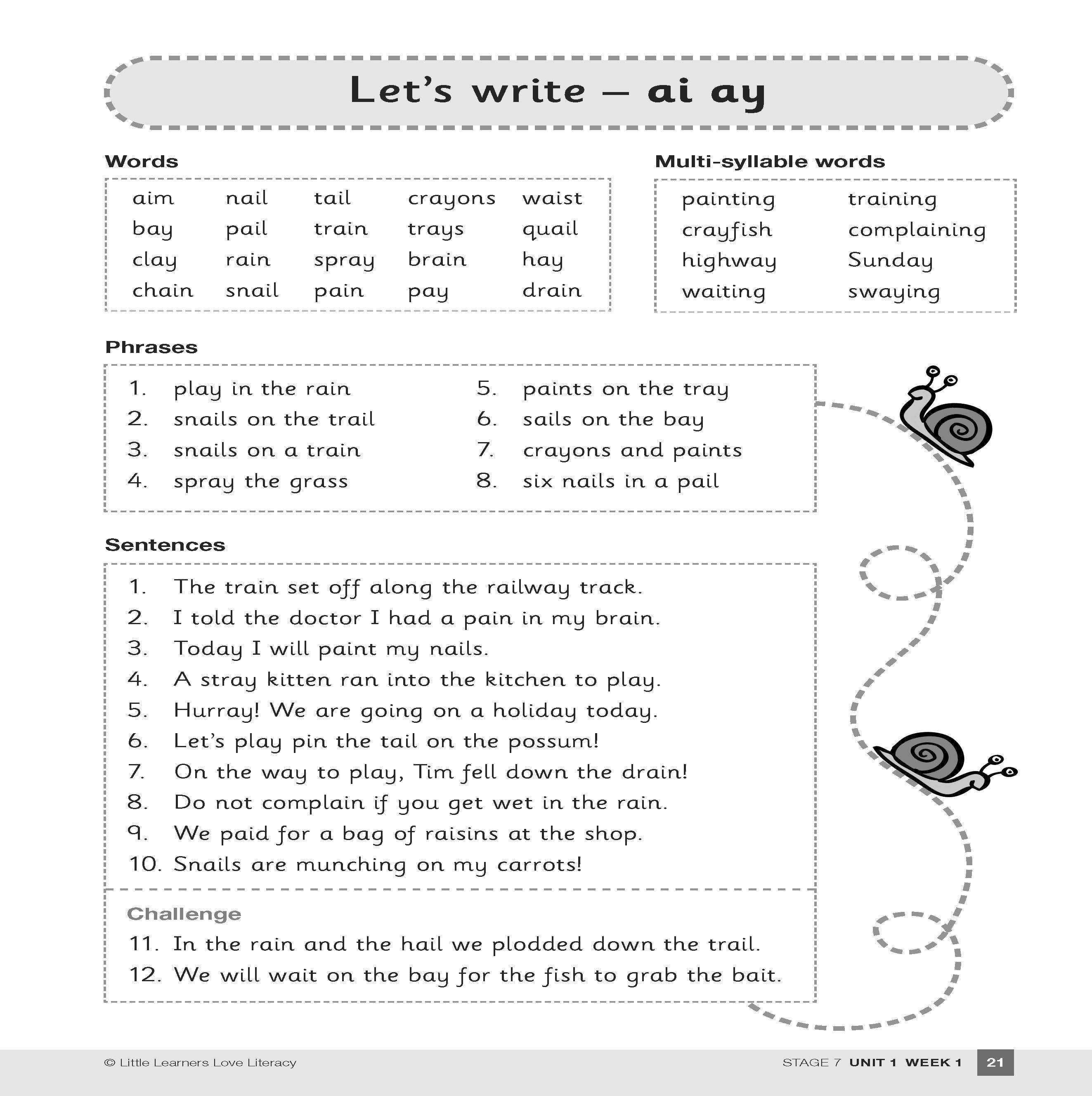
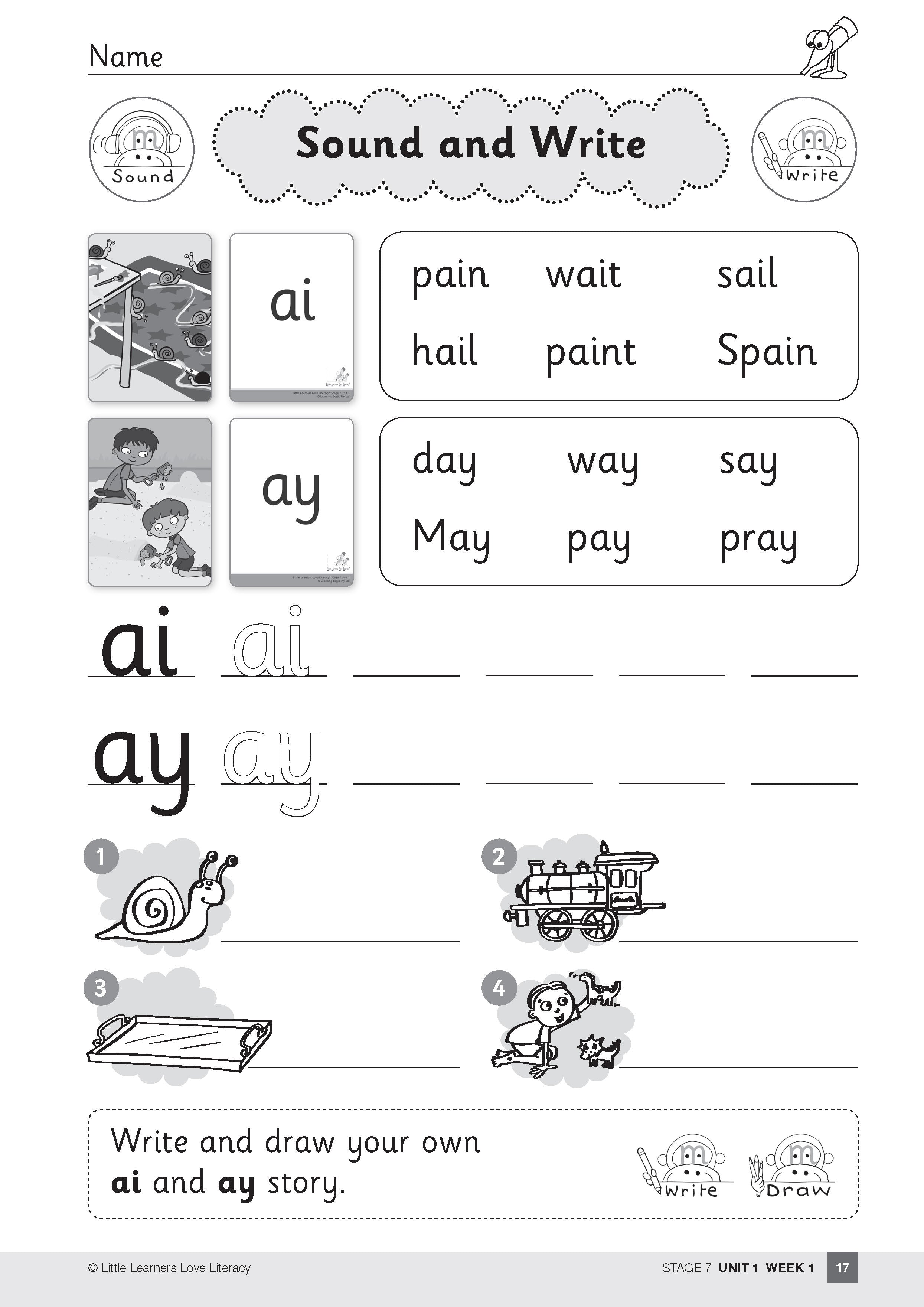





Planning small group work
Regular small group sessions are an essential part of Little Learners Love Literacy®. They are also your opportunity to differentiate beyond the whole class teaching.
Small group reading sessions with decodable books should take place every day, so that you see each child once per week. Please consult our page on small group reading for more information, advice and resources to support you with this approach.

While planning your small group work you might consider:- what is the purpose of the activity? Is it 'busy work'? Children should be practising and applying the phoneme-grapheme correspondences and skills that have recently been taught.- how you would usually manage small group work within your class. What can you keep and what will you change about how you organise this?- what resources are available to utilise? Think about resources within the LLLL program that you have. A teacher’s aid or parent helpers could assist also.
The main question we get asked about the small group instruction is "what will the other children do?" This will depend on the age of the children and on the week of teaching within the LLLL scope and sequence. There are plenty of options within the LLLL resources (expand below for details).



